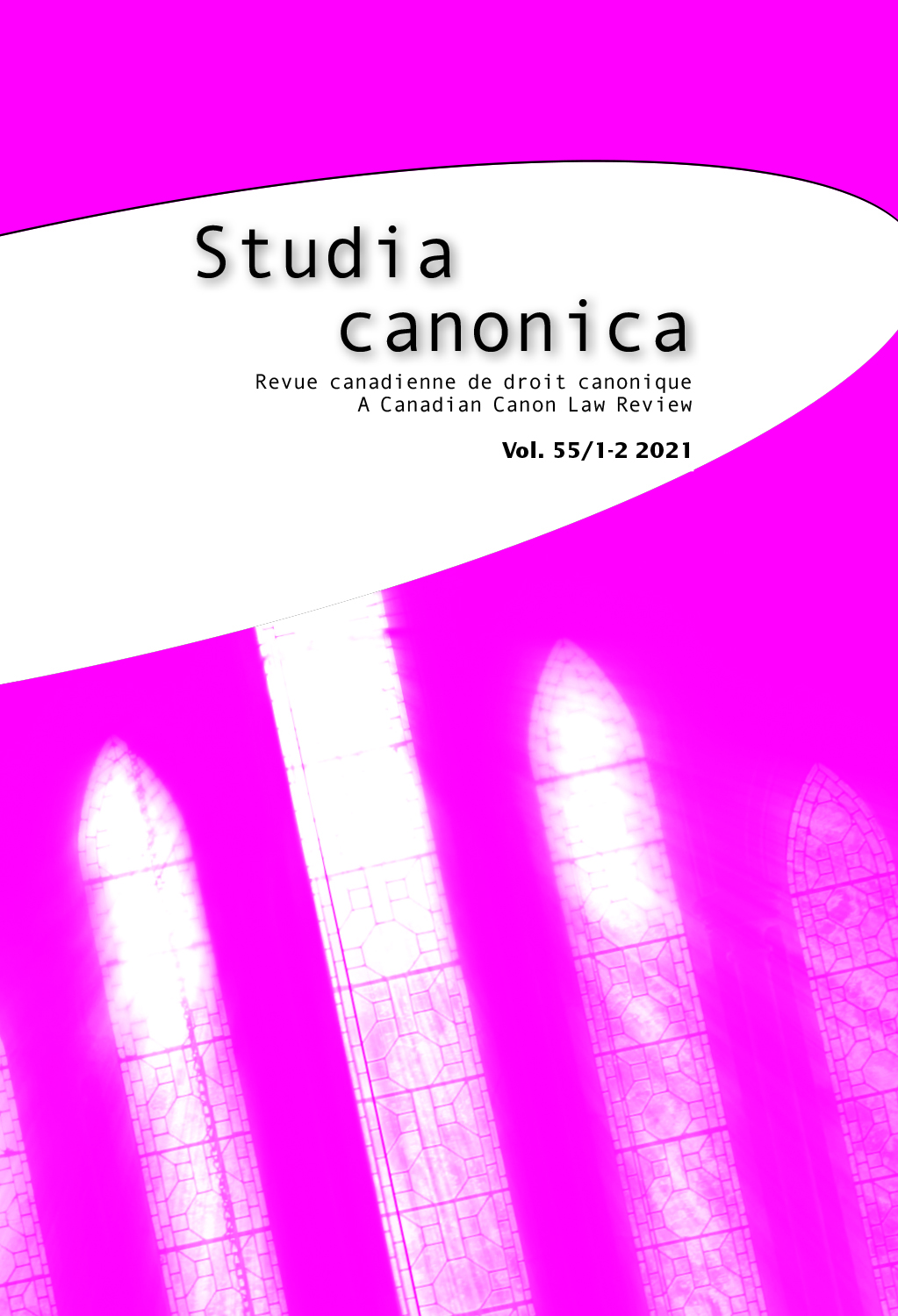 previous article in this issue previous article in this issue | next article in this issue  |

Preview first page |
Document Details : Title: The appellatio mere dilatoria in Causes of Nullity of Marriage Subtitle: A Contribution to the General Theory of the Appeal against a Definitive Sentence Author(s): DANIEL, William L. Journal: Studia Canonica Volume: 50 Issue: 2 Date: 2016 Pages: 383-452 DOI: 10.2143/STC.50.2.3183448 Abstract : One of the novelties introduced in Pope Francis’ 2015 reform of the marriage nullity process is the legislative classification of some appeals against a definitive sentence as 'merely dilatory'. Given judicial experience, many commentators and practitioners initially took the expression 'merely dilatory appeal' to mean an appeal that is made by the appellant with the intent to cause delays in the cause. When an appeal is made as a delay tactic, therefore, the new law would seem to allow the appellate judge simply to confirm the decision immediately. This view, however, is seen to be overly simplistic, since it may frequently happen that a delay-motivated appeal is made against an otherwise unjust sentence, whose injustice in reality should impede its simple confirmation. The author accordingly demonstrates that, apart from the motives of the appellant, an appeal is merely dilatory when it would certainly cause a delay in the execution of a clearly just definitive sentence. This discussion is situated within an investigation of the foundational elements of the institute of the appeal, namely, its nature, the notion of a grievance (gravamen), and the motives of an appeal. An examination of the institute of the rejection of an appeal is also made (cf. CIC c. 1631), given the seeming resemblance between the immediate confirmation of an appealed sentence prior to an appellate process and the rejection of an appeal in limine. L’une des nouveautés introduites en 2015, par le pape François dans sa réforme sur le processus de nullité du mariage, est la classification législative de certains appels contre une sentence définitive comme «simplement dilatoire». Compte tenu de l’expérience judiciaire, de nombreux commentateurs et praticiens ont d’abord utilisé l’expression «appel simplement dilatoire» pour signifier un appel déposé par l’appelant dans l’intention de retarder la cause. Lorsqu’un appel est appliqué comme une tactique de retard, la nouvelle loi semble par conséquent permettre au juge d’appel simplement de confirmer la décision immédiatement. Cependant, ce point de vue, est considéré comme trop simpliste, car un appel de retard motivé peut être, par ailleurs, déposé contre une sentence injuste, dont l’injustice dans la réalité devrait entraver la simple confirmation. L’auteur démontre donc, qu’à part les motifs de l’appelant, un appel est simplement dilatoire quand il aurait certainement causé un retard dans l’exécution d’une sentence claire que définitive. Cette discussion se situe dans une enquête sur les éléments fondamentaux de l’institut de l’appel, à savoir sa nature, la notion d’un grief (gravamen) et les motifs de l’appel. Un examen de l’institut du rejet d’un appel est également fait (cf. CIC c. 1631), compte tenu de la ressemblance apparente entre la confirmation immédiate d’une peine en appel avant une procédure d’appel et le rejet d’un pourvoi in limine. |
|


